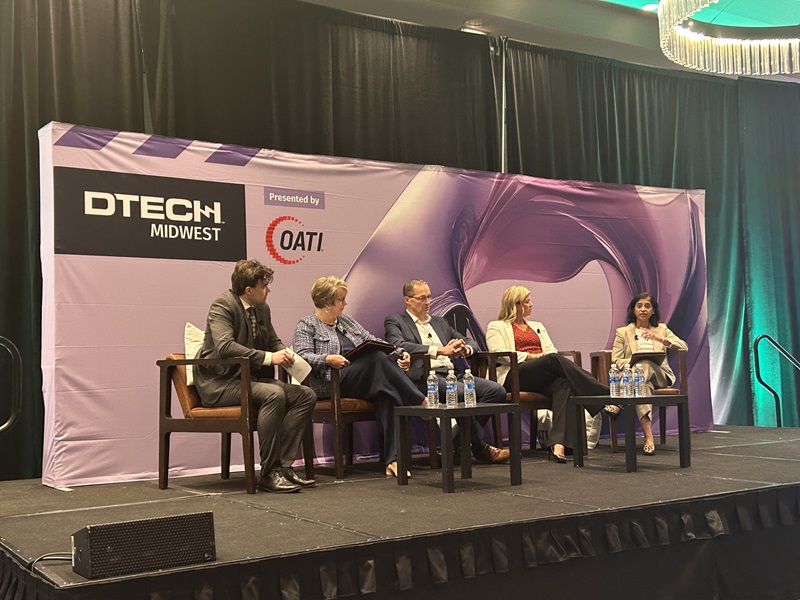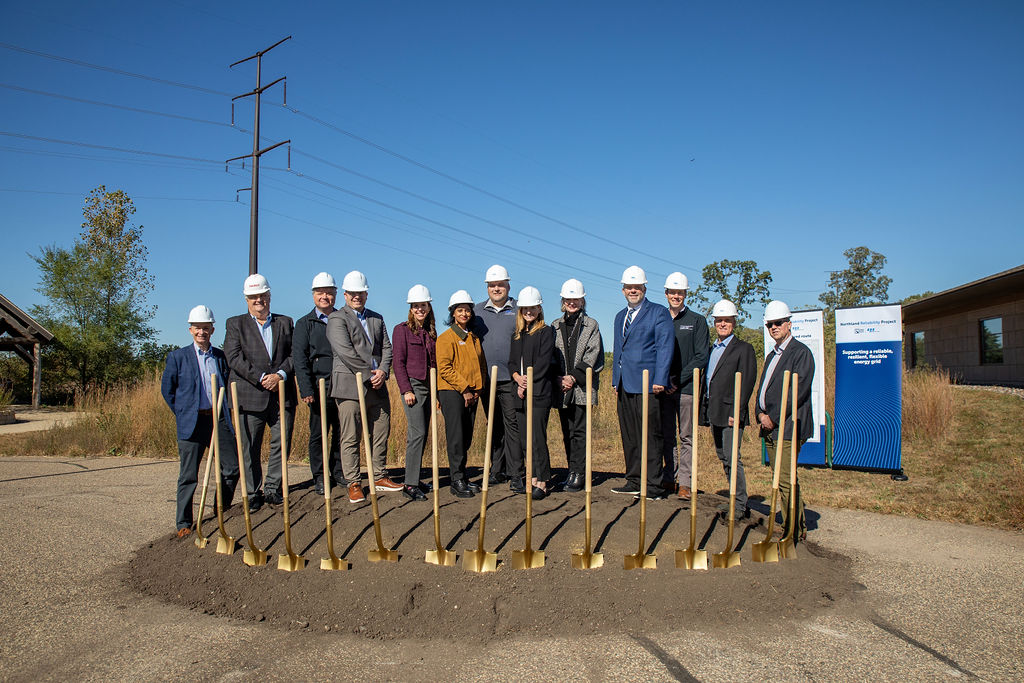Great River Energy hosted DTECH Midwest, one of the utility industry’s preeminent events
Great River Energy recently served as host utility for a major regional conference that brought together electric utilities, tech providers, government officials and more to discuss solutions to challenges currently facing the industry.
The inaugural DTECH Midwest conference, held July 14-16 in Minneapolis, also marked the first time an electric cooperative fulfilled the role of top utility sponsor of a DTECH event.

“It’s in our backyard, in the state where our 26 member-owner cooperatives and their consumer-members are located. Being the host utility just seemed like the right thing to do,” said Jeff Haase, director of member services at Great River Energy.
The conference brought together more than 300 professionals for over 30 educational sessions and two keynote sessions featuring topics that ranged from artificial intelligence (AI), cybersecurity and transportation electrification to policy and regulation.
Great River Energy Vice President and Chief Transmission Officer Priti Patel, along with Haase, were among the energy leaders who presented at the event. Patel participated in a keynote panel on “reliability, resilience and the road ahead” with representatives from Consumers Energy, the Midwest Reliability Organization and Xcel Energy.
The panel followed opening remarks on the power of AI for grid operations. Patel noted that Great River Energy has taken a “proactive … but pretty measured approach” when it comes to AI and advanced analytics.
“We have started exploring a number of AI and advanced analytics around becoming much more predictive and not reactive, creating early warning systems for us when it comes to our infrastructure: transmission line inspections, putting sensors inside of substations to figure out failures, and vegetation management forecasting,” Patel said.
Haase took part in an educational session called “Driving the Future of Electric Vehicle Grid Planning” where common pain points for EVs — from both customer and utility perspectives — and their potential fixes were discussed. He spoke to the unique service territory Great River Energy’s members serve, from rural areas to the Twin Cities metro.
“Oftentimes, the first question people ask when looking at EVs is: ‘Can it pull my boat?’” Haase said. “So, we have different kinds of needs that we’re trying to meet with our member-owners. We’re looking at how to incorporate electric vehicles into our membership in a manner that’s going to maintain our competitive rate position.”
Great River Energy was one of the first co-ops to join the Electric Power Research Institute’s EVs2Scale2030 initiative, a three-year commitment focused on aligning all critical market stakeholders as EV goals increasingly target 50% new vehicle sales by 2030. That initiative provided tools that Great River Energy has shared with its membership and incorporated into its own geographic information system tools.
 " data-object-fit="cover">
" data-object-fit="cover">